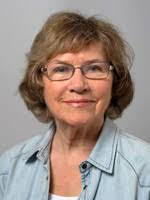Voices in the Field: Professors Asbjorn Eide and Wenche Barth Eide

By Professor Brigit Toebes
This interview is the first publication from the series ‘Voices in the field,’ a joint endeavour by GHLG and IFHHRO .*

Professor Asbjorn Eide (Oslo) is co-founder and former director of the Norwegian Centre for Human Rights at the University of Oslo and a renowned human rights scholar who stood at the cradle of the tripartite typology of state obligations (respect, protect, fulfil). In 1981 Eide was elected member of the UN Sub-Commission on the Promotion and Protection of Human Rights (UN Sub-Commission on Human Rights, 1981—2003), where he has been re-elected several times as the only Nordic member, and has been responsible for developing a number of studies of this sub-committee.

Wenche Barth Eide is Professor of Nutrition at the Medical Faculty of the University of Oslo. She was a pioneer with Asbjørn and other Norwegian colleagues in the early work on interlinkages between food and human rights and continued for many years to give content to the human right to adequate food; specifically the group developed a right to adequate food matrix which combines the tripartite typology of state obligations with elements of food and nutrition security (later used and adapted by Brigit Toebes for the right to health). More recently they have in their emeriti positions been working on the human rights consequences of unhealthy diets and have in this context helped create the interdisciplinary research and action network FoHRC (Food, Human Rights and Corporations which Wenche currently coordinates.
Asbjorn:
How did you come to the tripartite typology of state obligations and why do you think this approach is important for the human rights field?
The initial work on this subject was the result of a study which I prepared during 1975-1976 for the Norwegian Ministry of Foreign Affairs for a subsequent discussion in the Parliament. Like most West European states, Norway had ratified both the ICCPR and ICESCR. In 1976 these two covenants entered into force, which made it more urgent to clarify the scope of the international protection of human rights and the corresponding state obligations. As part of the preparation for the study I analyzed the ongoing debate in the United Nations, which had become more active during those days. In the early 1970s there was a rather sterile debate between the West and the then existing socialist states of Central and Eastern Europe. The Western debate, dominated to a large extent by the USA, considered human rights primarily to consist in negative obligations, setting restraints on what the state could do, while the then socialist countries in Central and Eastern Europe tended to argue that human rights were provided by society organised as the state, that the rights were positive (right to education, right to health, right to work allocated by the state, right to social security etc.) .
I simply looked at the existing conventions and concluded that both sides were wrong or had oversimplified the implications of the text that they had themselves adopted. Against the dominant Western view, I pointed out that it had long been accepted that the state did not only have to respect the fundamental freedoms but had also a protective role –e.g. in protecting property, which had long been seen as a role of the state. These Western states had also long recognised the obligation of states to ensure access to at least primary education for all, and an extensive obligation to ensure health care for all.
Against the then socialist view that human rights were given by the state I pointed out that this did not even match the language of economic and social rights, where e.g the right to work “freely chosen” was one example of the autonomy of the individual.
More generally, I pointed out that a comprehensive reading of the International Bill of Human Rights implied an understanding of the interdependence and interrelationship between all rights.
It was on the basis of these considerations I indicated in 1975-1976 that the international system of human rights entailed three categories, or levels, of state obligations – the obligation to respect the freedoms and autonomy of people, to protect that freedom against third parties, and to fulfil those rights that could only be ensured by society as a collectivity organised by the state, such as the right to health care and public health, and the right for all to education.
It was obvious that a balancing act would have to be drawn between these different sets of obligations, and that it would be for politics and laws to set that balance, but the human rights listed in the International Bill of Human Rights would serve as signposts both for politicians and courts in determining that balancing act.
What is your message to human rights lawyers working in the field of economic, social and cultural rights?
That they should at all times take into account the interdependence and interrelationship between the rights set out in the International Bill of Human Rights and those other conventions since adopted. They should also take into account that the Universal Declaration of Human Rights was adopted as a “common standard of achievement” to be realised through progressive measures, national and international. This is also the basic message of Article 2 of the ICESCR. The implication is that we shall always strive towards better realisation of human rights through their progressive realisation.
Wenche:
What is the most important challenge in terms of the world’s nutrition for the years to come?
We have currently a double challenge globally in nutrition in that “malnutrition” is no longer defined only as undernutrition or specific nutrient deficiencies, but also manifested in the rapidly rising obesity “epidemic” both in rich and poor countries, and not least in children. Undernutrition still persists as a primary nutrition problem in many poor countries, but has been reduced in recent years while obesity is on its way up in several developing countries. A major problem is that obesity in childhood may predispose for chronic diseases in adult age, such as cardiovascular disease, diabetes Type 2, respiratory disease and some cancers, which are also on the increase all over the world. This “double burden of malnutrition” is critical both to countries and their health budgets and to poor households where the two forms may exist side by side, especially in urban areas with less physical activity. A special concern is the well-documented influence of unethical commercial marketing of unhealthy junk foods high in fat, sugar and salt directed to children and youth. The recent attention to the responsibility of transnational companies and other business enterprises for respecting human rights in their operations, must be specifically directed to food companies, but also to governments that must take seriously their obligations to protect through regulations their populations against harmful products of any kind according to international human rights law, and specifically the human right to adequate food as established in the International Covenant of Economic, Social and Cultural Rights and the Convention of the Rights of the Child. .
What can the human rights lawyers learn from the nutrition specialists in this regard?
In my opinion, it is a question of reciprocal learning! The public health nutrition community and health-oriented human rights lawyers have much in common but many of them normally do not meet and speak with each other. There is a gap in understanding each others’ language, and I regret in particular that public health nutrition experts in general have not yet fully grasped the importance of the law and particularly human rights law and practice, and how it could mean a lot in addressing the global double burden of malnutrition. I believe we must foster new alliances that will cross-disciplinary and sectoral borders and learn from each other to develop an innovative way to use the law for better diet-related health. And as a university person, I strongly believe academia has a particular responsibility of preparing students from both “camps” for this!
*Voices in the Field is a multimedia interview series that shares the stories of experienced professionals in the field of health and highlights the role of human rights in their careers. This project is brought to you by Global Health Law Groningen and IFHHRO, and is produced by Jacquelyn Veraldi and Nicole Rusli. Find out more about what inspired Voices in the Field.

